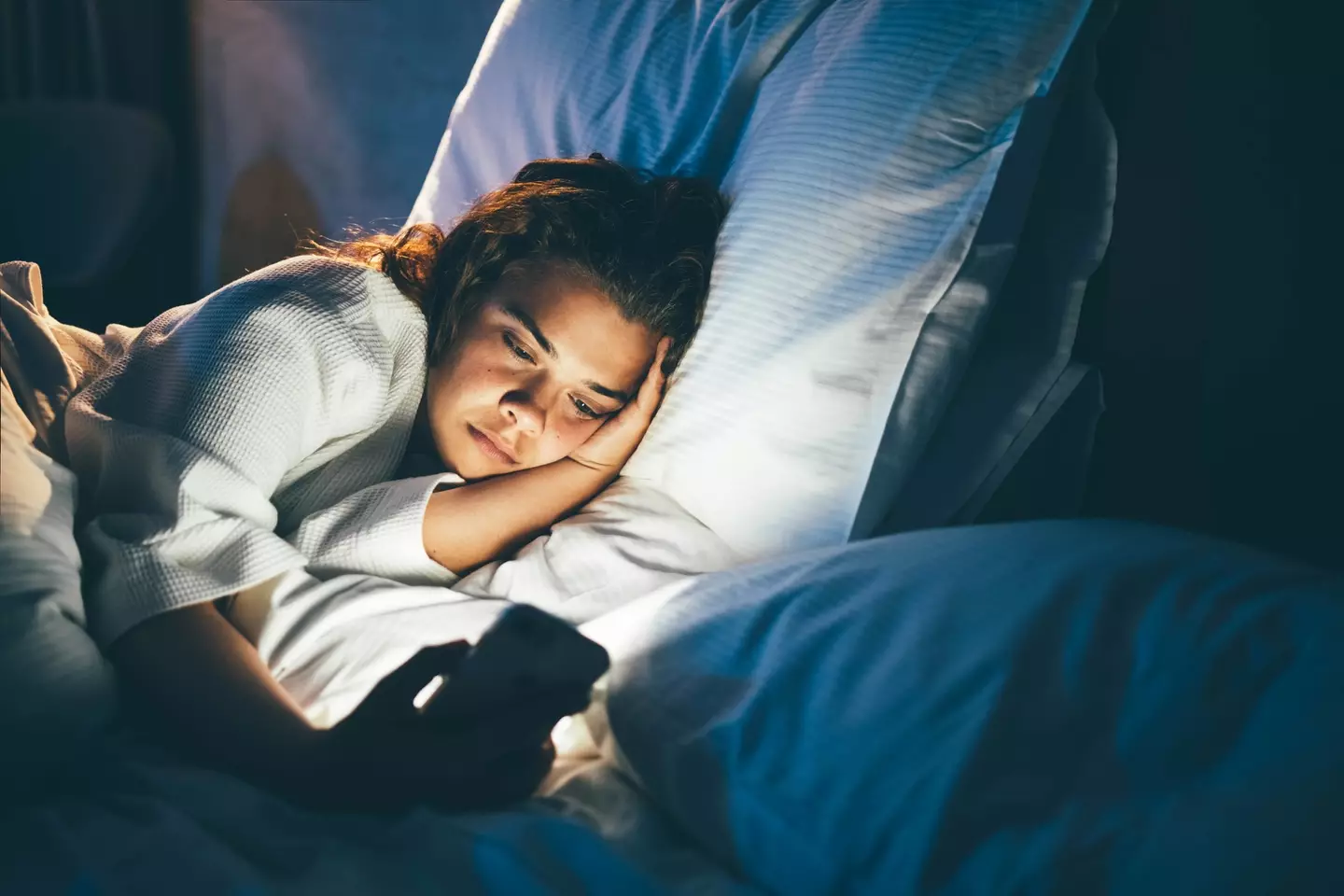
If you're guilty of spending time doom scrolling, you might want to listen to this.
It's no secret that as a society we've all become addicted to our phones - There's even a word for the anxiety we feel when separated from them: nomophobia.
We have the power to reach almost anyone and everywhere from these small devices we carry in our pockets in just a matter of seconds, so it comes as no surprise that people are very dependant on them.
Speaking about this, one doctor revealed some insight into how our behaviour can impact our mental health.
Advert
One an episode of podcast The Diary Of A CEO with Steven Bartlett that aired earlier this year, Dr Aditi Nerurkar, a stress expert, broke down just how much our phone addiction can affect us.
She revealed exactly what we should avoid doing, and which phone activity can impact us the most.
If you do want to live a life full of anxiety and stress, Dr Nerurkar said: "Get on your phone, make sure it's on high brightness and scroll through every social media platform, every news platform, watch graphic content, videos of horrible things happening in the world at midnight. And keep doing that off and on until 4 or 5 am."
Advert
As reluctant as we are to admit, that does sound pretty familiar - it's no wonder we don't exactly wake up feeling refreshed.
If you do want to avoid the negative effects of your phone, she shared what you should do.
No prizes for guessing the first one: scrolling late at night. And there's a reason we do this - Dr Nerurkar said it's down to a "primal urge" to scan for danger.
"In recent times there's been a lot of bad news, in fact it feels like the onslaught of bad news one thing after another, whether it's a climate disaster or a conflict in a certain part of the world or something or the other is always happening now," she said.
Advert

"The information stream is rapid and unprecedented, and so we are constantly scrolling and scanning for danger."
So even though it might go against every fibre of your being, doing something different before bed - like reading a book or taking a bath - might actually do you the world of good.
The world can be a pretty scary place right now, and with our social media feeds often flooded with upsetting videos, it's not surprising our brains find it hard to switch off.
Advert
Constantly looking at this kind of content, Dr Nerurkar said, can trigger the fight or flight response in you.
"Graphic images and videos on your phone can increase your risk of PTSD and mental health conditions, as it triggers the fight or flight response and can lead to indirect trauma," she said.

"Studies that your risk of PTSD increases when you consume graphic images, even if that thing that you're consuming is happening thousands of miles away, like any conflict, any climate disaster, anything."
Advert
The third phone habit she mentioned was the way we're constantly reaching for our devices.
Although it might feel like second nature to grab your smartphone and start scrolling, Dr Nerurkar said it can lead to "mobile phone dependency".
Her advice for all of this? Limit phone usage to 20 minutes a day - which likely would be a bit of a challenge for a lot of us, so maybe we'll have to swing for 60.
